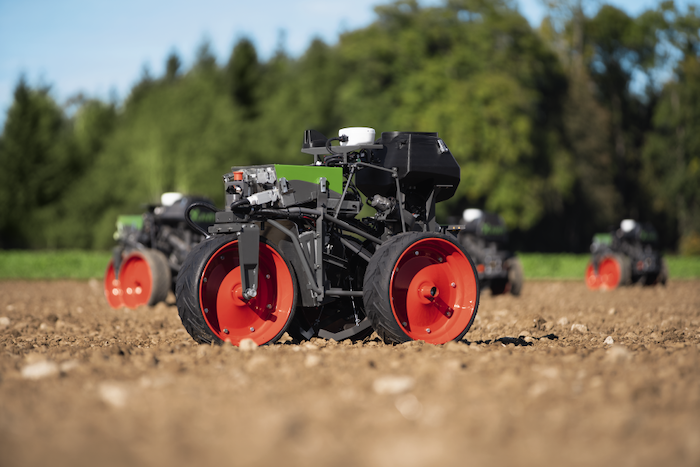Digging into innovations being advanced by AGCO, based in Duluth, Georgia, reveals much about the potential future of technology for cultivating regenerative and precision agriculture.
AGCO has made acquisitions to amass a portfolio that includes Precision Planting from Monsanto (now Bayer), along with Massey-Ferguson, Fendt, Challenger and Valtra. With new CEO Eric Hansotia, AGCO is sowing the seeds for a global refresh of its mission, wrote Heather Clancy for Green Biz. That mission includes electrified farm machinery, autonomous field robots and smart tractor retrofits.
"It has always been about the economic return for the farmer; now we’re trying to pull sustainability into that," AGCO’s new (and first) director of global sustainability, Louisa Parker-Smith, told Clancy in an interview.
Parker-Smith said enabling sustainable farm production is a core tenet of future product design. Moving away from heavier equipment, for example, could help reduce soil compaction, allowing fields to absorb and sequester more carbon dioxide. And, through its Precision Planting division, AGCO is developing more devices that help farmers track organic matter or water metrics, among other data.
One example is Xaver, a robotic approach to seed planting being developed and tested as part of the company’s Future Farm initiative. The robots can be orchestrated via satellite positioning and a cloud-based software application.
AGCO is also electrifying some of its larger tractors, notably several from the Fendt division.
Parker-Smith’s new role is to help the entire company, from designers to dealers, rise to the occasion. "My focus is really to harness the energy of the entire organization. There’s a huge amount that is happening," she said. "We don’t want just to be caught up with the risk management aspects of this. We are really looking at value creation from the customer perspective."
AGCO isn’t the only ag equipment provider, of course, that envisions a hybrid, electric future in agriculture. U.K. startup Small Robot Company is developing farmbots that can weed, plant and feed crops; and Japanese company Kubota has an autonomous, electric tractor with four treads instead of wheels that can traverse all sorts of terrain. Monarch Tractor has a fully electric, "driver optional" smart tractor. John Deere also has an autonomous, electric tractor.
It takes a long time for farm equipment to be put out to pasture, so convincing farmers to invest in these emerging technologies — regardless of the potential benefits they might have for regenerative ag — is definitely a long-term proposition, Clancy wrote. But given how much food companies are banking on convincing their supply chains to invest in regenerative agriculture, it would be a mistake to overlook the role that electric, autonomous vehicles can play in the field.




![[Technology Corner] Quantifying the Impact of a Precision Ag Pioneer](https://www.agequipmentintelligence.com/ext/resources/2024/08/23/Quantifying-the-Impact-of-a-Precision-Ag-Pioneer.png?height=290&t=1724422794&width=400)
Post a comment
Report Abusive Comment